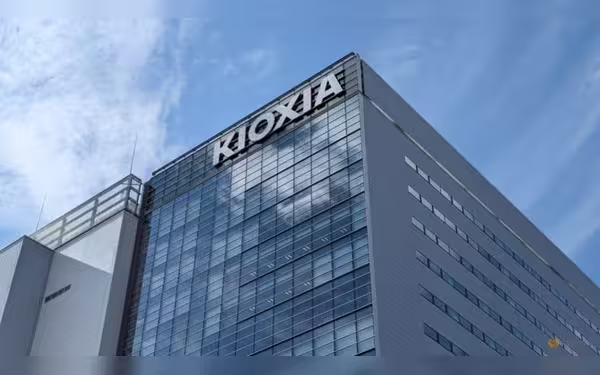Sunday, November 17, 2024 12:37 AM
Kioxia Files For IPO Targeting December Launch
- Kioxia aims for December IPO after previous attempt halted.
- First company under Japan's new IPO engagement rules.
- Plans to expand production for AI chip demand.
 Image Credits: channelnewsasia
Image Credits: channelnewsasiaKioxia files for an IPO targeting December, marking a significant move in Japan's tech sector.
TOKYO: In a significant move for the technology sector, Japanese chipmaker Kioxia has officially filed for an Initial Public Offering (IPO) on Friday. This decision comes after a previous attempt was halted in October due to investor concerns regarding the company's valuation. Kioxia, which is backed by Bain Capital, is now aiming for a December launch for its IPO, marking a renewed effort to enter the public market.
The IPO registration is particularly noteworthy as Kioxia is the first company to operate under Japan's new rules that allow firms to engage with potential investors prior to receiving listing approval from the Tokyo Stock Exchange. This innovative approach could pave the way for other companies looking to go public in the future.
Sources familiar with the situation have indicated that Kioxia expects to receive the necessary approval by late November. At that time, the indicative price for the shares will also be revealed. The company’s filings suggest that it plans to conduct the IPO sometime between December and June, providing a window of opportunity for investors.
Kioxia was acquired from Toshiba six years ago for a staggering 2 trillion yen. Since then, it has been operating under Bain Capital's guidance, paying an annual business consulting fee of 1 billion yen. However, this fee will come to an end with the IPO, and Kioxia will owe Bain an additional 3.5 billion yen upon going public.
In the competitive landscape of memory chips, Kioxia faces tough rivals such as Samsung Electronics and SK Hynix. The company has recently experienced challenges due to a downturn in the memory chip market, raising questions about the sustainability of a recent price recovery. Nevertheless, there are signs of optimism; Kioxia reported a 32 percent increase in operating profit, reaching 166 billion yen in the July-September quarter compared to the previous three months.
Looking ahead, Kioxia plans to expand its production capacity, particularly in response to the growing demand for chips used in artificial intelligence applications. The company is well-known for its focus on NAND flash memory, a technology it pioneered in the 1980s. Notably, major clients like Apple and Dell account for 21 percent and 9 percent of Kioxia's sales, respectively, highlighting the company's significant role in the tech supply chain.
As Kioxia prepares for its IPO, it is essential to consider the broader implications of this move. The success of Kioxia's public offering could not only bolster its financial standing but also serve as a bellwether for the semiconductor industry in Japan. Investors will be watching closely to see how Kioxia navigates the challenges ahead and whether it can capitalize on the growing demand for advanced memory solutions.













